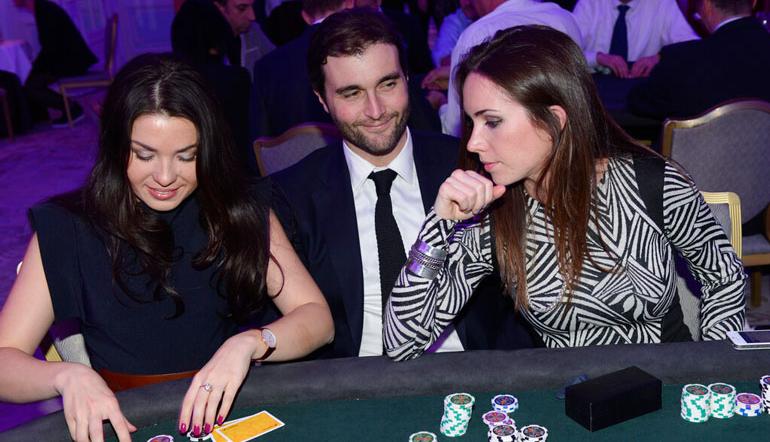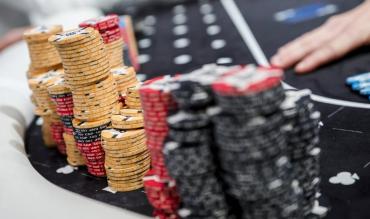Elon Musk had $5.7 billion to give away to deserving charities.
Intelligently, he realised that he could not navigate the big-money undertaking personally if he wanted the best outcome.
Brilliantly, he hired a poker player to do it for him. Most importantly, he pushed all-in on the right poker pro: Igor Kurganov!
- He is an astute, high-stakes tournament specialist
- He plays with a Zen-like sense of calmness
- Igor has more than $18 million in winnings
- His recent history of being a philanthropist is well documented
Kurganov was hired to figure out where Musk’s good-cause billions should land.
Along with his girlfriend and fellow poker pro, Liv Boeree, plus another pro, Phillip Gruissem, Kurganov co-founded Raising for Effective Giving. Launched during the 2014 World Series of Poker, this organisation engages in a form of charity known as “effective altruism:”
Effective Giving AKA Effective Altruism
It seeks out what Boeree has described as “the best methods to do the most good.” The organisation is often referred to as REG, which, cheekily, is poker jargon for frequent players, or regulars, in a particular game.

Often, it’s shortened to regs. Much of the money distributed by REGS comes from generous poker community members.
Musk typically does things his way. Poker players usually devote much of their lives to taking money away from people as opposed to giving it. So, the idea of drafting a poker player sounds, at least initially, epically counterintuitive.
Justin Smith, a professional poker player, turned movie producer (in his old profession, he crushed online games as BoostedJ), sees the sense of it all.
“I think Igor is a smart, intentional, inspiring person,” Smith told 888. “There are very specific skills, which relate to logic, that poker players have. Many other fields do not cultivate those skills. I see them adding up to being something of a superpower.”
As to how this superpower translates to both taking away in poker and giving in charity, Smith added, “Igor’s reputation is that that he is super-methodical and thoughtful and has a human component that the best poker players have.
“He understands why people do what they do”, – which translates to recognising multiple layers of logic behind a bluff at the table or a cause in the world of charitable giving. “He takes the humanistic elements into account while doing the math. He has empathy for people on a massive scale and also knows how to be logical.”
Is Kurganov the Right Man for the Job?
The details on exactly what the poker pro will be doing for Musk remain closely guarded. But the gist of Kurganov’s job seems to be to keep in touch with grantees of Musk’s donations and review their proposals.
At the poker table, Kurganov famously weighs the value and meaning of wagers. In his role on behalf of Musk, he will use similar thinking to find the most cost-effective charities that can have the highest impacts.
A pro, with a past in high tech, who has played at tables with Kurganov, describes him like this to 888:
“He’s shy and nerdy, like a lot of successful people in poker. But he definitely understands technology, allocation and how to evaluate various situations.”
Here’s a hand from 2014, where Kurganov “soul reads” opponent Ole Schemion.
- After being dealt Queen, Jack off-suit, Kurganov opened with a small raise and called a reraise from Schemion.
- Kurganov landed second top pair on the flop, with two Jacks and never improved.
- He coolly called bets all the way to the river, on which the board scarily ended with three hearts and three to a straight.
Schemion, who only had a pair of 7s, shoved with all kinds of possibilities visible, realising that a bluff was required to take the pot.
Unrattled, Kurganov calmly talked through the situation. He mentioned Schemion’s change of tone when he stated “all-in”. He recognised his opponent’s shaking hands, referencing a “friendly smile to me” before saying -- “Ole, Ole, Ole”, in the tone of a disappointed parent.
The Igor sharply called to win the pot with a relatively weak hand. Schemion sheepishly tabled his cards and grinned toothily as Kurganov raked in the chips.
Kurganov – The Unlikely Poker Player?
Despite his evident capacity for playing the game at a high level, Russian-born Kurganov must have initially seemed an unlikely candidate for a poker career. He appeared destined for a good education, an impressive degree, and the life to which it would lead.
He now expresses gratitude to his parents, who both had engineering degrees, for moving their family from St. Petersburg to Germany. There he had access to a high-level public education system. He did well in high school, enrolled in college and was poised to pursue maths.
It made sense.
Out of the gate, as a boy, Kurganov loved numbers. He participated in the Math Olympics and flirted with becoming an academic. But then he cringed at the idea of maths as a theoretical thing.
“The alternative [to becoming a professor],” he told, “I am High Stakes Poker” -
“! would probably have been for me to do financial modelling for a bank. But then I discovered poker and realized that I preferred it.”
Plus, he added, “I started being able to cash out for $1,000 per month. That went on for a few months, and that money was amazing for a college student.”
Soon after, Kurganov packed in his college courses and devoted himself to studying the game. “I loved poker,” he said. “For two years, I ate one-and-a-half frozen pizzas per day. I played and learned to get better by thinking what I could do differently in a particular hand. I talked it through with friends.”
He approaches poker, charity and life with strict rationality. This kind of thinking allows him to be so good at poker – and skilled at finding places to donate money for the most significant impact –
“If we use more evidence and reasoning in our decision making, that is a good thing,” Kurganov said.
“Specifically, I refer to starting in good faith, and not having a dog in the fight, when we argue and try to seek out the truth”.
He achieves these statuses without the biases that cloud clear thinking in a poker game and beyond.
In the world of Kurganov, the argument may take place entirely in his head. It may apply to divining whether an opponent is bluffing or which charity will most efficiently resolve a problem.
And the latter has great potential to be much more crucial than anything going down in even the juiciest of poker situations.
“Igor is now helping the richest man on Earth to donate in the best way possible,” said Smith.
“Working with Elon Musk on that kind of a project, it can allow him to change things in a real way. I see it being good for poker and good for the world.”
*Credit for all of the photos in this article belongs to AP Photo*


